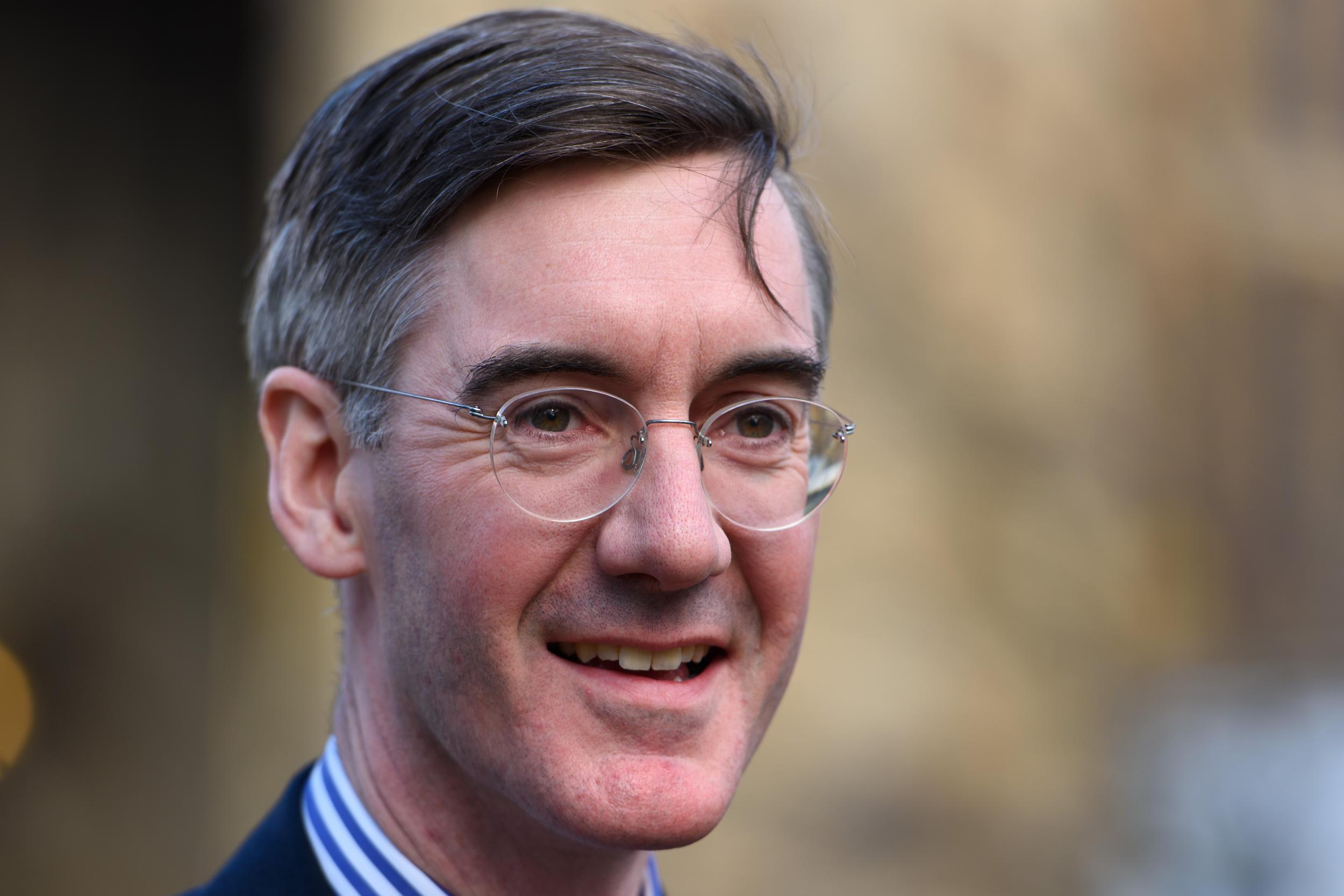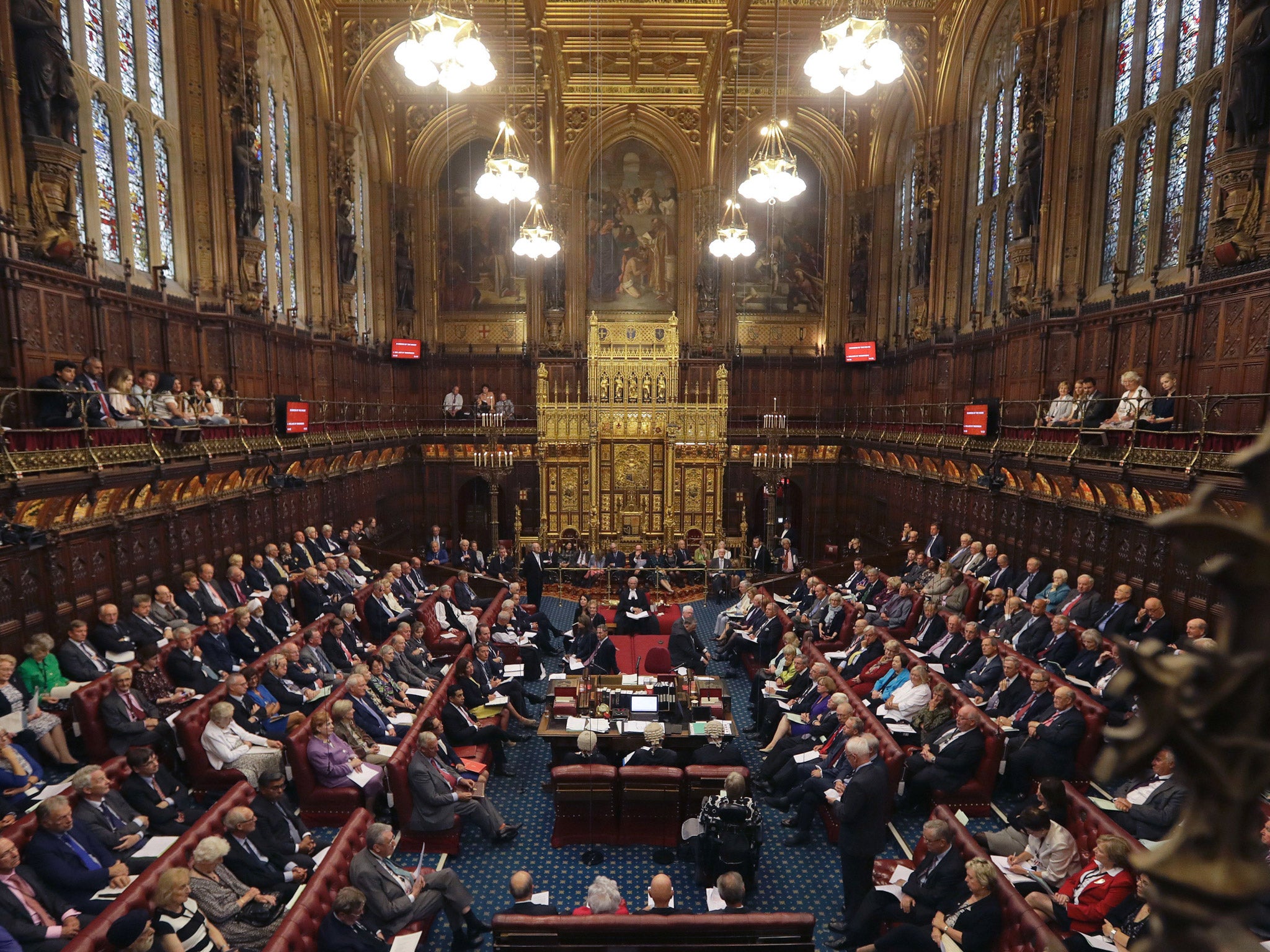Theresa May should create 1,000 new peers to get Brexit through the House of Lords, Tory MP Jacob Rees-Mogg says
Prominent Leave supporter says threat of a general election would bring Commons into line

Your support helps us to tell the story
From reproductive rights to climate change to Big Tech, The Independent is on the ground when the story is developing. Whether it's investigating the financials of Elon Musk's pro-Trump PAC or producing our latest documentary, 'The A Word', which shines a light on the American women fighting for reproductive rights, we know how important it is to parse out the facts from the messaging.
At such a critical moment in US history, we need reporters on the ground. Your donation allows us to keep sending journalists to speak to both sides of the story.
The Independent is trusted by Americans across the entire political spectrum. And unlike many other quality news outlets, we choose not to lock Americans out of our reporting and analysis with paywalls. We believe quality journalism should be available to everyone, paid for by those who can afford it.
Your support makes all the difference.Theresa May should stuff Parliament full of Brexit supporters to bypass scrutiny of triggering Article 50 by the House of Lords, a Tory MP has said.
Jacob Rees-Mogg, a supporter of Brexit, said Ms May should create 1,000 new peers in the Lords to make sure Brexit negotiations begin without delay.
Brexiteers fear that the Lords, which is thought to have a Remain majority, will reject any proposal to start EU negotiations, if Parliament is allowed to have a vote on the issue.
The High Court yesterday ruled that Parliament in fact should have a vote, despite protestations by the Prime Minister. The Government is to appeal the decision at the Supreme Court, with a decision due in December.
Mr Rees-Mogg also said he believed that MPs in the House of Commons would vote for Article 50. Howver, he said that if this was not the case a general election could be called.
“I think most MPs accept the will of the people and will vote for Article 50,” Mr Rees-Mogg told the Daily Mail.
“If that turns out to be wrong, it's definitely a matter of confidence and there would have to be a general election.
“If the Lords was obstructive we would just have to create 1,000 peers.”

The warning follows a threat by an anonymous leading cabinet minister who said last month the Government might “do a Lloyd George” and stuff the upper house full of Brexiteers.
As a Liberal Chancellor in 1909, Mr George threatened to flood the Lords with new peers to pass his “People’s Budget” , after the then Tory-dominated chamber refused.
The Lords was a constant thorn in the side of David Cameron, inflicting dozens of amendments or retreats on Government bills in recent years.
But senior peers have said they will not block Brexit. Labour Lords group leader Baroness Angela Smith pledged earlier this week: “We will scrutinise. We will examine. But my Lords – we will not block. But neither will we be bullied into abdicating our responsibilities.”
Ms May has refused to say what the specific aim of her negotiations are or what their opening terms will be, only stating that “Brexit means Brexit”.
Downing Street yesterday insisted that the High Court ruling would not delay the timetable for starting Brexit negotiations. Ms May has said Article 50 would take place in the first quarter of 2017, before the end of March.
Negotiations continue for two years, according to the provisions of the treaty, after which time the UK would leave the EU whether a deal had been negotiated or not. There are fears that an impasse could leave the UK trading on World Trade Organisation rules, a state of affairs that would likely lead to a significant economic shock.
After two years all EU nations must unanimously vote to prolong the negotiating period for a new settlement with the UK.
Join our commenting forum
Join thought-provoking conversations, follow other Independent readers and see their replies
Comments